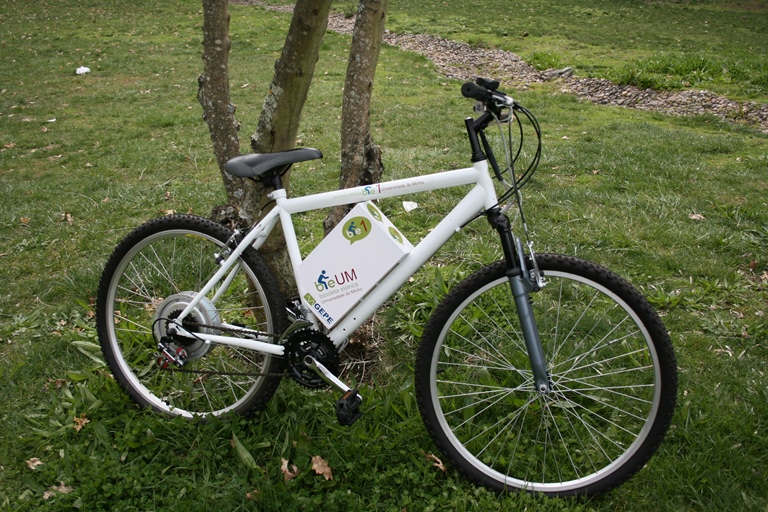
|
Being an inexpensive, versatile and environmentally friendly vehicle, the bicycle is an ideal mean of transport for short distances, and plays a key role in today's society.
However, for longer distances it can cause tiredness to the user. In order to solve this problem are being developed electric bikes that can cover longer distances with less effort to the user, therefore extending its usefulness.
Electric bikes can be composed of several parts, but three are essential, the electric motor that enables the assisting traction on the bike when the user needs it, the batteries that provide energy to power the electric motor, and the motor controller.
With this in mind, the Group of Energy and Power Electronics (GEPE), of University of Minho has focused on the study and development of solutions in the area of electric mobility, which includes an electric bike.
The BeUM (Electric Bicycle University of Minho) presents itself as an environmentally friendly transport solution for medium and long distances. The conception and development of all electronic circuits that compose the bicycle were performed in GEPE, in order to apply the acquired know-how of previous projects, to the development of innovative electric bicycles.
The BeUM uses as a mean of auxiliary propulsion a BLDC motor (Brushless Direct Current), applied to the rear wheel. This electric motor helps the user with three auxiliary modes, decreasing muscle strength and consequently the tiredness. The lithium-ion polymer battery, integrated into the structure bike, ensures a maximum range of 60 km (depending on the mode of help, the land topography and user).

|



